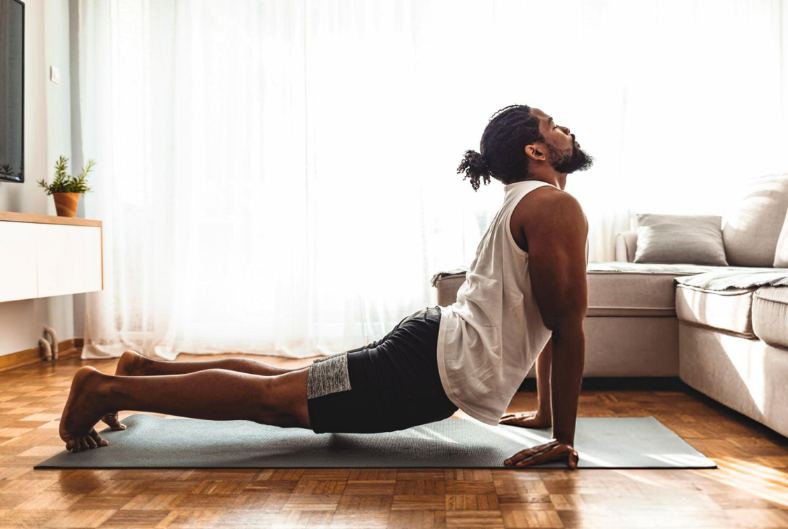It’s easy to feel stressed, anxious, or overwhelmed. But what if there was a way to take care of both your heart and your mind at the same time? That’s where mindful fitness comes into play. By combining physical exercise with mindfulness techniques, you can improve your emotional resilience and boost your heart health. Let’s look into how mindful fitness can help you feel better and be healthier.
The Struggle With Stress and Your Heart
Many of us go through life dealing with stress, but we don’t always notice the impact it has on our hearts. Stress is more than just an emotional feeling—it can affect your heart in serious ways. Here are some signs stress is affecting your heart:
- Tightness or pain in your chest
- Faster heartbeat or palpitations
- Increased blood pressure
- Shortness of breath or difficulty breathing
- Sleep problems or insomnia
The good news is, you don’t have to live with these symptoms. Mindful fitness can help.
Why Mindful Fitness Is Your Heart’s Best Friend
Mindful fitness is not just about exercising; it’s about being fully present in the moment during your workout. This combination of mindfulness and exercise has a unique power to help reduce stress, calm your mind, and protect your heart. Here’s how it works:
- Mindfulness and mental health are closely connected. When you focus on your breath and your body, it can reduce anxiety and improve mood.
- Mindfulness exercises during your workout help to focus the mind, allowing you to be more aware of your movements and how your body feels.
- Mindfulness techniques for stress include breathing deeply, staying aware of your body’s sensations, and staying in the present moment instead of worrying about the future.
By using these mindfulness techniques, you can boost both your emotional well-being and your heart’s health.
Also Read: Anti-Inflammatory Diet for a Healthy Heart: What You Need to Know
10 Benefits of Mindfulness
Practicing mindfulness can improve your life in many ways. Here are 10 benefits of mindfulness:
- Reduces stress and anxiety
- Helps to regulate emotions
- Improves focus and concentration
- Boosts self-awareness and self-compassion
- Improves heart health by lowering blood pressure
- Enhances sleep quality and relaxation
- Strengthens your emotional resilience
- Promotes overall well-being and happiness
- Increases your ability to manage difficult emotions
- Helps you stay in the present moment, reducing worry
10 Ways Exercise Helps Stress
Exercise is a great way to handle stress. Regular physical activity does wonders for both your body and mind. Here are 10 ways exercise helps stress:
- Releases endorphins that improve mood
- Reduces tension in the muscles
- Provides a healthy distraction from daily worries
- Enhances self-confidence and self-esteem
- Helps you sleep better at night
- Regulates your body’s response to stress
- Lowers levels of stress hormones like cortisol
- Increases your energy levels
- Strengthens your ability to cope with difficult emotions
- Encourages you to be present and focused during workouts
By mixing mindful movements with physical exercise, you can calm your mind and strengthen your body at the same time.
Strengthen Your Heart and Mind: Techniques for Emotional Well-Being
Mindful fitness helps with emotional well-being by focusing on both your heart and mind. Here are a few mindfulness techniques that will help you relax your heart and mind:
- Breathing exercises: Focus on slow, deep breaths to calm your nervous system and relax your heart.
- Mindful stretching: Stretching while focusing on the present moment can help release built-up tension.
- Yoga: Yoga is an excellent way to relax your body and mind. Poses like a child’s pose or savasana are great for calming your heart.
- Walking meditation: While walking, pay attention to each step, breathing deeply and staying focused on the present.
- Body scans: This involves mentally scanning each part of your body to find areas of tension and consciously relaxing them.
These mindfulness exercises can help lower stress and make you more resilient in the face of challenges.
Ways to Relax Your Heart and Reduce Anxiety
If you’re feeling anxious or stressed, your heart can become tense, making it harder to relax. Here’s how to relax your heart muscle and calm anxiety:
- Focus on your breath and try deep breathing techniques to calm your heart rate.
- Engage in physical activities like yoga or walking that help relax your body.
- Practice progressive muscle relaxation, where you tense and release muscles one by one.
- Meditate in a quiet space to help release anxiety and reduce stress.
- Stay present during your workout by focusing on each movement, rather than worrying about everything else.
These simple steps will help you feel more at peace and improve your emotional resilience.
Building Emotional Resilience Through Mindful Fitness
To improve emotional resilience, you need to develop habits that help you cope with life’s challenges. Mindful fitness is one way to do this. It helps you manage stress better, stay calm in difficult situations, and build strength both in your mind and body. By practicing mindfulness and mental health techniques regularly, you will improve your ability to bounce back from setbacks.
A word from The Doctor —
Mindful fitness is a simple but powerful way to improve both your heart health and emotional resilience. By incorporating mindfulness techniques into your exercise routine, you can reduce stress, relax your heart, and increase your overall well-being. Remember to focus on your breath, stay present, and listen to your body. The more you practice, the better you will feel, inside and out.
So, get started by contacting us right away.

